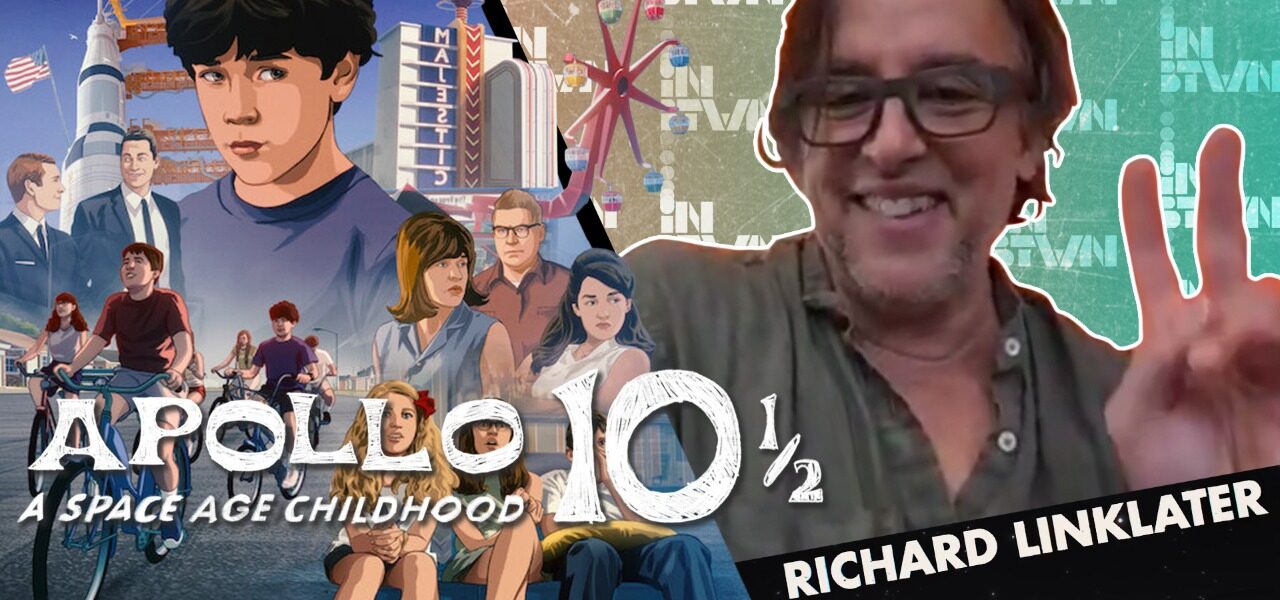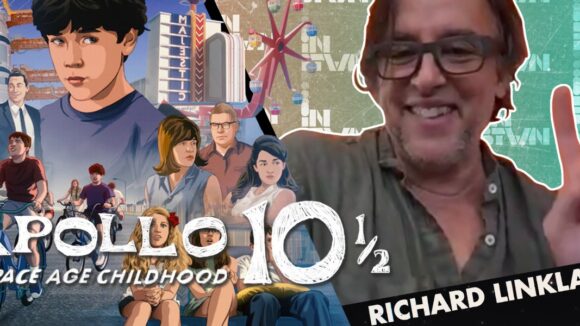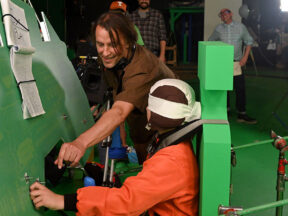

Richard Linklater On His Return To Animation With ‘Apollo 10 1/2: A Space Age Childhood’ (Video Interview)
“It’s fun to see things you think you know and see them in a fresh way.” – Richard Linklater
Veteran filmmaker Richard Linklater is no stranger to thinking outside the box. You can see across his wide filmography that he approaches things from a deeply reflective starting position despite claiming that, “I’m pretty simple minded.”
His latest film, Apollo 10 1/2: A Space Age Childhood, sees him return to rotoscoped animation and aims to answer a very simple question: “What was it like to grow up as a kid around NASA at the time of the moon landing?”
Linklater joined INBTWN Animation, the official online event partner of Cartoon Brew, for a conversation about his latest feature and to discuss the complexity of memory. The veteran filmmaker also talks about why he returned to rotoscoping, how he crafts a visual narrative, and how the idea of this story popped up during the filming of Boyhood (2014). Watch the full interview here:
“There are a million stories in the world” says Linklater, but he finds the real key ingredient to telling a story is “how to express it.” Form is an essential element for visual storytelling, and he explains that, “I’m always looking for the right form, and I’ll spend years thinking about it.”
For Apollo 10 1/2, he decided to return to animation, in particular rotoscoped animation. It’s a technique he used to great effect in the past on Waking Life (2001) and A Scanner Darkly (2006), and one that he believes lends much to his realistic style of filmmaking. “It’s my default mode… I want you to think these performances are real, that we just turn on a camera and this is what’s really happening,” he explains.
That idea of capturing reality is central to Apollo 10 1/2, despite the fact that the film primarily deals with a child’s fantasy of being sent to test the Apollo mission before the real launch. Linklater admits, “It’s some kind of wish fulfilment,” owing to the fantasies most kids share to be the singular hero needed to avert a disaster. “It’s a basic kids story, but it was a fantasy of mine,” he says.
While making Boyhood, the filmmaker remembered growing up near NASA during the peak of the organization’s popularity. “It was an interesting time to be a kid.” Those memories planted the seed of an idea which Linklater mulled over for years. More than just narrating his childhood though, he wanted to explore “just how to mingle fantasy and reality, and to make them on the same level.”
Linklater struck that balance through an elongated flashback that nestles you into the time period as Jack Black regales the audience about what it was like to grow up in the 1960s. This is then intercut with familiar documentary footage of global events from the era, which the film’s team also painstakingly rotoscoped.
“It’s sort of the look and feel, we could get that scrapbook feel of 1960s. We could kind of mix film stocks, genres, graphic styles, and color palettes and create the textures to get that documentary look. I haven’t seen a lot of period animated films that bring in documentary footage the way you might in a narrative [film],” he explains.
Linklater concedes that, “If it had been live action, it would have had a lot of that [aesthetic] I think, so let’s just bring it into animation.” To that end, the director used documentary footage as he would have if he were cutting together a live-action film. That strategy opened a whole world of possibilities and gives Apollo 10 1/2 a fresh, new feel.
Linklater says he has a very good memory but understands that “memory is like a theatrical production” rather than data on a hard drive, and that it’s easy to conflate memories and lose the specificity of a moment. Although he could rely on his memory to find the emotion and trajectory of the narrative arc, to make the story specific to the time period, the film’s crew needed to access a huge amount of reference material. So, they collected hours of home videos and hundreds of photos to assemble a collective memory of the time period.
By rotoscoping that historical footage, the filmmaker is “playing a trick on your brain… You’re processing something that seems very human and real.”

.png)


